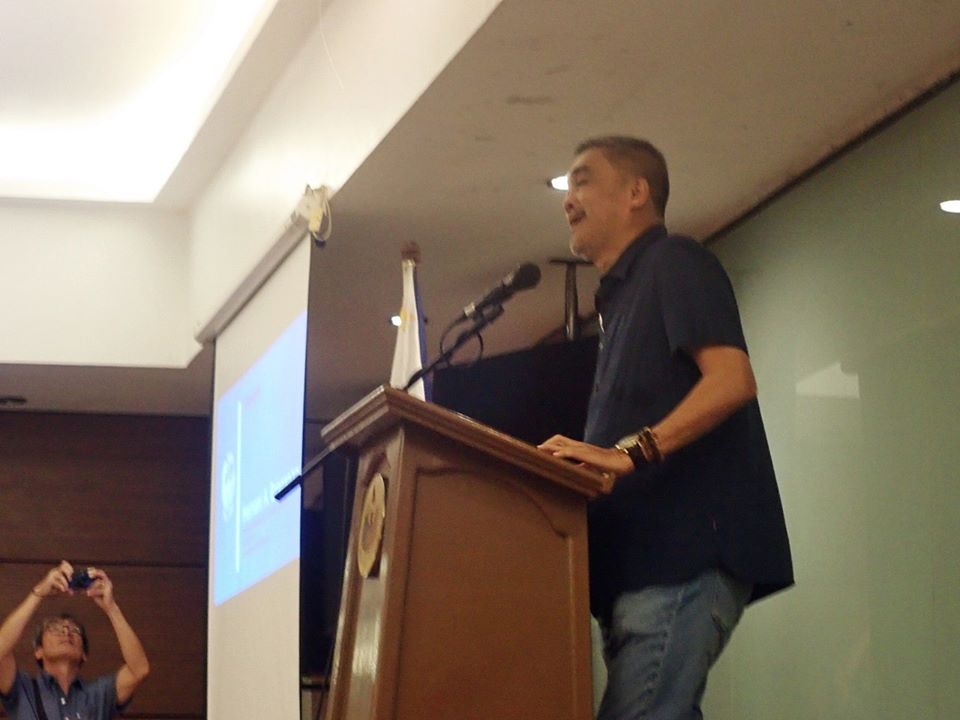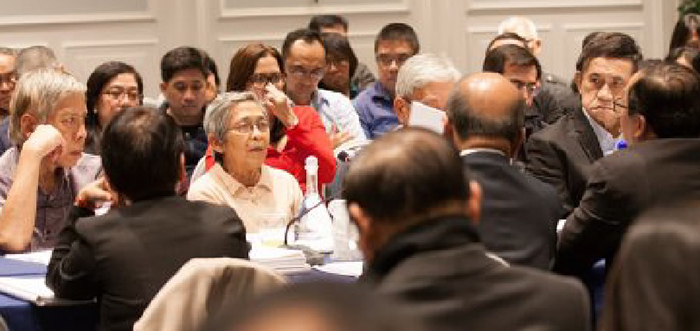Braganza: CASER is treasonous? Wow!
A government negotiator took strong exceptions to allegations made by several cabinet members that talks on social and economic reforms with the National Democratic Front of the Philippines (NDFP) may be likened to treason and surrender of Philippine sovereignty.
Hernani Braganza, veteran Government of the Republic of the Philippines (GRP) negotiator and former agrarian reform secretary, also denied that past government negotiating panels did not consult with the military during formal and informal negotiations.
“There are allegations that CASER (Comprehensive Agreement on Social and Economic Reforms) [negotiations] was treasonous. Wow!” Braganza told hundreds of participants of the Assembly for Peace organized by the Philippine Ecumenical Peace Platform at the Quezon City Sports Club last Friday, January 7.
Braganza denied that the military was never consulted in negotiations on social and economic reforms, adding there are several military officers in the GRP negotiating team in the four formal rounds and at least seven reciprocal working committees meetings held both in Europe and the Philippines.
Office of the Presidential Adviser on the Peace Process (OPAPP) chairperson Carlito Galvez last week dismissed further negotiations on social and economic reforms with the NDFP, likening the prospective approval of the main agenda of the peace talks to an act of “treason”.
“It is a formula for the surrender of the national government’s integrity as well as the state’s sovereignty,” Galvez said.
“CASER is a product of a secret backchannel maneuver by the communist insurgents. There was zero consultation with the government’s economic team, security forces, local agencies, and local government units, and most importantly, the Filipino people,” Galvez further alleged.
“That is not true. I made the rounds of military camps and I explained it [CASER] to them,” Braganza said, revealing further that a University of the Philippines team led by its former president Alfredo Pascual actually crafted the GRP draft of the CASER.
He also said many of the GRP’s line agencies were present in the negotiations.
Aside from Galvez, national security adviser Hermogenes Esperon Jr. also questioned further CASER discussions while defense secretary Delfin Lorenzana, interior and local government secretary Eduardo Año, Armed Forces of the Philippines deputy chief of staff for civil-military operations Major General Antonio Parlade, Jr. took turns opposing President Rodrigo Duterte’s plans to resume formal negotiations with the NDFP.
But Braganza revealed that CASER’s ultimate approval by the GRP does not end with its negotiators or even with President Duterte himself.
“Ultimately, this will be brought before Congress,” he said.

Braganza also belied Galvez’s accusations that peace agreements with the NDFP would result in a surrender of Philippine sovereignty.
“For the record and in fairness to the NDFP, after all that has been done to and said of them, they never asked for their own territory. Kahit isang paso.” Braganza said. (Not even a handful of soil.)
“In all the common documents (between the GRP and the NDFP), there is no mention of a coalition government. Hindi ko alam kung bakit paulit-ulit (sila),” he added. (I do not know why they keep on repeating this.)
Braganza said the CASER is a way of addressing inequality, especially in the countryside where job creation and adding value to agricultural products are needed.
“I should know these. I was once mayor, congressman and agrarian reform secretary,” he said.
Braganza said the programs in the common GRP-NDFP draft of the CASER are all in the Philippine Constitution.
Braganza added he and labor secretary Silvestre Bello III were officially authorized by Malacañan Palace to talk to NDFP negotiators even after they were fired last year.
He challenged peace talks critics in the Duterte Cabinet to take their opposition to the process with Duterte himself.
“If you are after our seats on the (negotiating) panel, it is all yours. I did not apply for it. But do not malign our names,” Braganza said. # (Raymund B. Villanueva)

